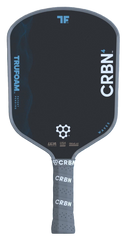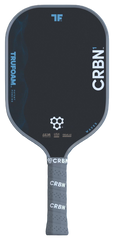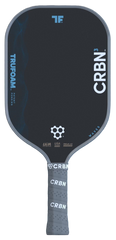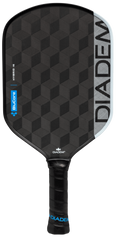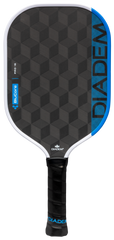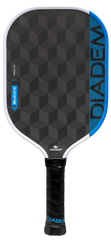Preparing for a pickleball tournament can evoke a mix of excitement and apprehension. Whether you are a seasoned player or new to the game, understanding the nuances of tournament readiness is essential for a successful experience.
This guide will outline the essential steps to help you become tournament-ready. From familiarizing yourself with the venue to honing your skills and fitness, we will cover it all. Additionally, we will provide tips for success during the competition and suggestions for what to do afterward, ensuring you maximize both your performance and enjoyment.
It’s time to elevate your pickleball game!
How to Prepare for a Pickleball Tournament
Preparing for a pickleball tournament requires a thorough approach that encompasses not just the physical training but also mental readiness and strategic planning. It is essential to understand the venue and court conditions, as these factors directly impact your overall game plan and practice methods.
This preparation should include refining various skills, such as serves, volleys, and footwork. Additionally, it is important to gather the appropriate equipment, become familiar with the rules and scoring system, and establish a warm-up and cool-down routine.
Maintaining hydration and proper nutrition throughout your preparation will also play a crucial role in ensuring you perform at your best.
1. Get Familiar with the Venue and Courts
Understanding the layout and specifics of the tournament venue and courts is crucial for any pickleball player striving for success, as it can significantly impact performance during competition.
Familiarity with court dimensions, including the precise measurements of the sidelines and baselines, enables players to better assess their movements and shots. Additionally, being aware of the surface type—whether it is indoor wood or outdoor concrete—can affect ball bounce and overall gameplay.
Recognizing elements such as wind patterns or lighting can offer strategic advantages. Players should actively visualize their court positioning, considering how to exploit their opponents' weaknesses based on these conditions.
Moreover, selecting appropriate equipment, such as paddles that align with their play style, can further enhance performance in accordance with the venue's characteristics, ultimately influencing competitive outcomes.
2. Practice Different Shots and Strategies
Practicing a variety of shots and strategies is essential for enhancing performance in pickleball, as it prepares players for the various match scenarios they may encounter during a tournament.
Incorporating specific drills that focus on forehand, backhand, serving, and volleying allows players to sharpen their techniques and develop a more versatile game. For example, repetitive forehand drills can significantly improve both power and accuracy, while dedicated backhand practice can enhance control and consistency.
Additionally, serving drills that mimic competitive match conditions can build confidence and strategic awareness, ensuring that players are well-prepared to utilize different types of serves, such as topspin or slice, at the appropriate times. Engaging in volleying exercises, like quick exchanges at the net, helps players react more swiftly and improve their reflexes.
By employing these targeted drills, players will not only refine their individual skills but also cultivate a deeper understanding of how to effectively apply various tactics during actual gameplay.
3. Focus on Your Fitness and Endurance
A crucial part of preparing for a pickleball tournament involves optimizing your fitness and endurance levels, as these factors can significantly influence your performance on the court.
To reach peak performance, it is important to incorporate a variety of training regimens. Engaging in endurance activities such as jogging, cycling, or swimming not only enhances cardiovascular health but also builds stamina, allowing you to maintain energy during intense matches.
Additionally, incorporating flexibility stretches improves your range of motion, which can help prevent injuries and increase agility on the court. Agility drills like ladder exercises or cone sprints are also beneficial; they sharpen your reflexes and quicken your footwork, both of which are essential for responding promptly to your opponents.
By prioritizing these aspects of physical training, you will gain a competitive edge and improve your chances of success in tournaments.
4. Develop a Pre-Game Routine
Establishing a structured pre-game routine can greatly enhance performance in a pickleball tournament, allowing players to prepare both mentally and physically for the match ahead.
Incorporating effective warm-up exercises is essential, as these activities enhance physical readiness, reduce the risk of injury, and improve agility on the court. Simple stretches and dynamic movements, such as lunges, arm circles, and high knees, are excellent for priming muscles for action.
Moreover, visualization techniques—like imagining successful plays and maintaining a positive mindset—set the mental stage for competition. Simultaneously, relaxation methods such as deep breathing and mindfulness practices can help calm nerves and build confidence.
Equally important are cool-down practices following a match, as they assist in recovery and reinforce a player’s overall mindset. This focus on recovery helps ensure that players remain focused and resilient for future challenges.
5. Plan Your Nutrition and Hydration
Proper nutrition and hydration are essential components of preparation for a pickleball tournament, as they have a direct impact on energy levels and overall performance during competitions.
To achieve optimal performance on the court, athletes should prioritize a balanced diet that incorporates a variety of carbohydrates, proteins, and healthy fats. In the lead-up to matches, consuming complex carbohydrates, such as whole grains, fruits, and vegetables, can provide sustained energy, while lean proteins contribute to effective muscle recovery.
During the tournament, it is equally important to quickly replenish energy. Snacks like bananas, energy bars, or trail mix can be excellent choices for this purpose. After matches, recovery should involve a combination of carbohydrates and proteins to restore glycogen stores and repair muscle tissue.
Hydration is a crucial element throughout this entire process; consistently drinking water and incorporating electrolyte-rich beverages before, during, and after matches can help prevent dehydration and maintain peak performance.
Understanding these principles will significantly enhance the competitive experience for athletes.
Tips for Success in a Pickleball Tournament
Success in a pickleball tournament hinges on a combination of mental preparation, effective communication, and strategic gameplay. It's equally important to maintain a focus on enjoyment and sportsmanship throughout the competition.
1. Stay Calm and Focused
Remaining calm and focused during a pickleball tournament is crucial for achieving optimal performance. This mindset enables players to respond thoughtfully to the fast-paced nature of match play.
Incorporating specific techniques can greatly enhance a player's game under pressure. For example, breathing exercises are effective in regulating heart rate and reducing anxiety, which helps to cultivate a calm mindset. Simple practices—such as inhaling deeply for a count of four and exhaling for a count of six—can effectively ground an athlete amidst the competitive whirlwind.
Moreover, mental visualization is an essential aspect of preparation. By vividly imagining successful shots and strategic maneuvers, players can bolster their confidence and alleviate performance anxiety.
When combined, these mental preparation techniques create a strong foundation for maintaining composure, ultimately leading to enhanced focus and responsiveness on the court.
2. Communicate Effectively with Your Partner
Effective communication with one’s partner is a fundamental aspect of achieving success in pickleball doubles, as it fosters teamwork and enhances the strategic approach to the game.
Engaging in open dialogue prior to the match allows partners to align on tactics, such as determining which player will take specific shots and how they should position themselves on the court. Discussing individual strengths and weaknesses can lead to the development of a cohesive game plan that maximizes both players’ abilities.
During gameplay, clearly calling shots and signaling intentions is essential; this practice not only helps avoid confusion but also builds trust between teammates. Good communication enables players to react swiftly to changing dynamics, ensuring that everyone is on the same page and ready to execute their strategy effectively, thereby reinforcing the essence of teamwork.
3. Observe and Learn from Other Players
Observing and learning from other players during a pickleball tournament can offer valuable insights into various strategies and techniques that individuals can incorporate into their own game.
By watching their movements, shot selection, and overall gameplay, one can identify successful tactics that may enhance personal performance on the court. This practice is particularly important in a competitive setting, where each player's style provides unique perspectives on managing pressure, positioning, and decision-making.
Understanding how others adapt to different scenarios can not only expand one’s skill set but also inspire the confidence to try new approaches. Ultimately, embracing the learning process from fellow players fosters a deeper appreciation for the game and accelerates personal growth within the competitive arena.
4. Be Adaptable and Willing to Change Strategies
Being adaptable and willing to change strategies during a pickleball match is essential for effectively responding to your opponent’s gameplay, and it can significantly influence the outcome of your matches.
For example, if the opposing team is particularly skilled at aggressive net play, it may be prudent to adopt a more defensive strategy, focusing on deep serves and groundstrokes to keep them at bay. On the other hand, if your opponent struggles with consistent accuracy, increasing the pace of your shots could result in more unforced errors on their part.
This flexibility in tactics not only enhances the overall match play but also enables players to capitalize on their opponent's weaknesses while leveraging their own strengths. Ultimately, this approach can lead to a more advantageous position on the court.
5. Have Fun and Enjoy the Experience
Ultimately, the true reward of participating in a pickleball tournament lies in having fun and enjoying the experience, regardless of the final outcome.
To cultivate a positive and enjoyable atmosphere, both players and organizers should emphasize the importance of sportsmanship and camaraderie throughout the event. This can be accomplished by encouraging friendly interactions both on and off the court, allowing competitors to celebrate one another’s successes. Small gestures, such as offering compliments or sharing high-fives after a challenging rally, can significantly enhance the enjoyment of the competition.
Incorporating social events or fun activities around the tournament can further strengthen relationships and help create lasting memories. By prioritizing respect and encouragement, participants not only enrich their own experience but also contribute to a supportive community that values enjoyment just as much as competition.
What to Do After a Pickleball Tournament?
After participating in a pickleball tournament, it is important to take some time to reflect on your performance, celebrate your achievements, and strategize for future improvements.
This process is essential for fostering continued growth in the sport.
1. Reflect on Your Performance
Reflecting on one’s performance after a pickleball tournament is essential for identifying strengths and areas that need improvement, which ultimately facilitates skill advancement in the sport.
By carefully analyzing specific incidents from match play, players can assess their strategic decisions, shot selection, and overall game management. Maintaining a journal or utilizing digital tools to log match statistics can provide valuable insights into trends over time.
Additionally, gathering feedback from coaches or peers enriches the reflective process, enabling players to recognize patterns they may have overlooked. Evaluating performance metrics such as accuracy, speed, and consistency not only brings attention to areas that require further focus but also underscores the significance of setting measurable goals.
Incorporating these evaluation methods fosters a culture of continuous improvement, leading to greater success in future competitions.
2. Take Care of Your Body and Rest
Taking care of one’s body and ensuring adequate rest after a pickleball tournament is vital for recovery and injury prevention as one prepares for future competitions.
Along with rest, it is important to incorporate specific rehabilitation exercises that target the muscles and joints most engaged during play. Stretching routines not only enhance flexibility but also significantly reduce the risk of strains.
Players should also consider active recovery techniques, such as light jogging or swimming, to maintain circulation without putting undue stress on the body. Scheduling regular rest days is essential, allowing the body to heal and rebuild, which ultimately enhances overall performance.
Implementing these injury prevention strategies, including proper hydration and nutrition, plays a crucial role in maintaining peak athletic condition and getting ready for the next challenge on the court.
3. Continue to Practice and Improve
Continuing to practice and enhance your skills is crucial after participating in a pickleball tournament. Consistent training helps keep your game sharp and prepares you for future challenges.
To genuinely elevate performance, it is important to incorporate focused drills and structured training routines that target specific areas for improvement. Engaging in repetitive exercises allows muscle memory to develop, ensuring that each movement becomes more instinctive over time. Regular practice leads to better decision-making on the court, enabling players to navigate various game situations more effectively.
By emphasizing agility, footwork, and shot variety through targeted sessions, players not only enhance their overall gameplay but also build confidence. Establishing a consistent training schedule can transform workouts into habits that promote growth and sustained improvement, ultimately benefiting participants in their upcoming competitions.
4. Sign Up for Future Tournaments
Signing up for future pickleball tournaments is an excellent opportunity to continue refining your skills and gaining valuable experience in a competitive environment.
By participating in these events, players are able to enhance their techniques through hands-on gameplay while also immersing themselves in the dynamic community that surrounds the sport. Engaging with fellow enthusiasts can lead to meaningful networking opportunities; discussions with more experienced players often provide insights and strategies that are difficult to acquire through solo practice.
Regular competition not only fosters resilience but also encourages adaptability—traits that are essential for any dedicated athlete. The registration process itself serves as a gateway to personal growth, motivating individuals to step beyond their comfort zones and fully embrace the excitement of the game.
5. Share Your Experience and Knowledge with Others
Sharing experiences and knowledge gained from participating in a pickleball tournament with others can significantly foster community engagement and enhance the overall learning process.
By organizing workshops and clinics, individuals can provide opportunities for novices to learn fundamental skills while benefiting from the insights of seasoned players. Mentoring beginners not only cultivates a supportive environment but also encourages a culture of collaboration where everyone feels valued.
As players come together to share strategies and techniques, they may form lasting connections that enrich the social fabric of the pickleball community. Additionally, creating discussion groups and online forums can further extend these conversations, ensuring that knowledge continues to flow and inspiring even more players to join in the fun.
Frequently Asked Questions
What is pickleball tournament preparation?
Pickleball tournament preparation refers to the process of getting ready to compete in a pickleball tournament. This may involve physical training, mental preparation, and strategizing for the specific tournament.
How can I physically prepare for a pickleball tournament?
To physically prepare for a pickleball tournament, it is important to maintain a regular exercise routine that includes cardio, strength training, and agility drills. It is also important to practice playing pickleball regularly and to gradually increase the intensity and duration of your practice sessions.
What are some mental preparation strategies for a pickleball tournament?
Mental preparation for a pickleball tournament can include visualization, positive self-talk, and staying focused on the present moment. It is also helpful to have a pre-game routine that helps you get into a confident and focused mindset.
Are there any specific tips for success in a pickleball tournament?
One tip for success in a pickleball tournament is to stay hydrated and fuel your body with nutritious foods leading up to the tournament. It is also important to get a good night's sleep before the tournament and to arrive early to warm up and get familiar with the courts.
How can I strategize for a specific pickleball tournament?
To strategize for a specific pickleball tournament, it is helpful to research the venue and conditions, as well as any potential opponents. You can also watch previous matches from the tournament to observe strengths and weaknesses of players and adjust your strategy accordingly.
What should I do after the pickleball tournament to recover and improve for the next one?
After a pickleball tournament, it is important to allow your body time to rest and recover. This may include stretching, foam rolling, and light exercise to prevent injury. It is also helpful to reflect on your performance and identify areas for improvement for the next tournament.
